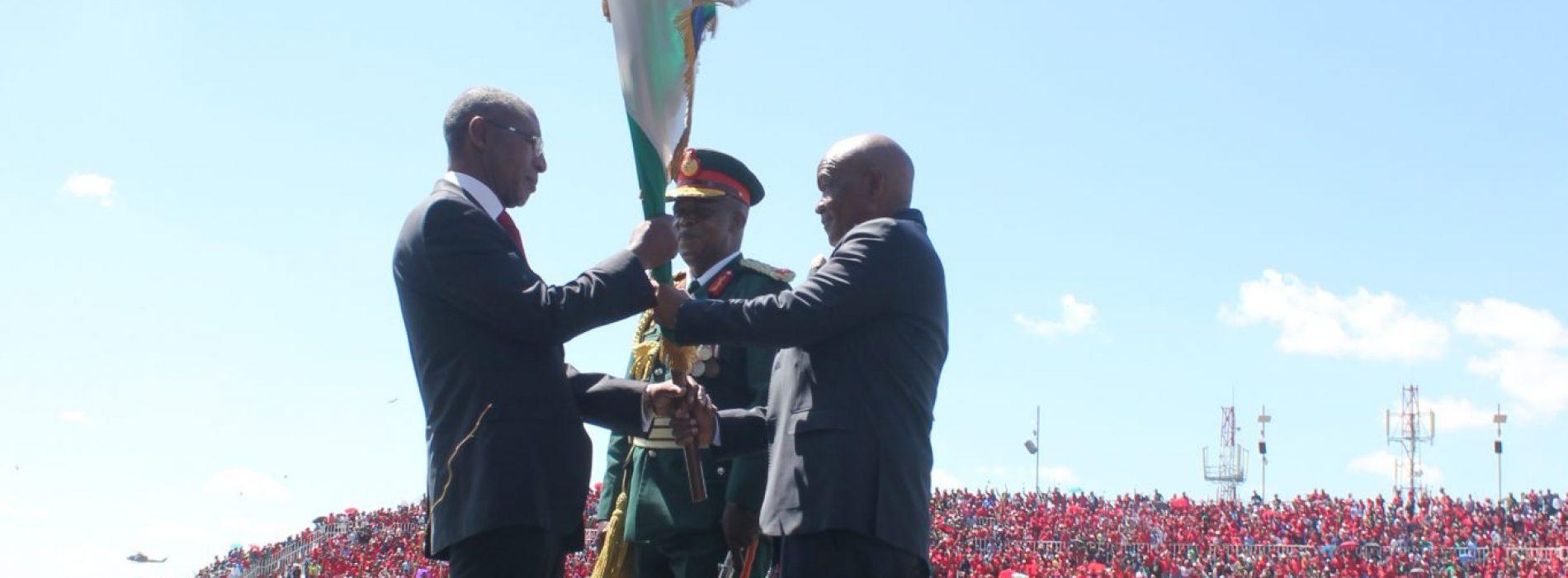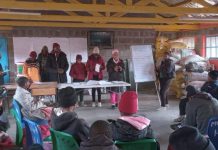Africa-Press – Lesotho. We do not inherit the earth from our ancestors, we borrow it from our children” Native American proverb. As Lesotho turns 50, every Mosotho needs to pause and reflect on this proverb.
We have not inherited Lesotho from our forefathers to do with it as we please. We have borrowed it from our children. We must therefore be careful to use it in their interests as well as our own.
Proper and honest reflection is required if mistakes from the first 50 years of independence are to be avoided. The mooted public and security sector reforms present the ideal opportunity to reflect and to begin the difficult process of fixing the things which are broken i.
e. the things which are impediments to our stability, growth and development. This is not going to be an easy undertaking because Basotho are divided and polarised. Agreeing on the things which are broken and how to fix them will be a mammoth task.
Perhaps the injunction that we be careful to do things in the interest of our children will nudge us to put aside petty differences and to focus on the important things.
A critical first step to start the next jubilee is to ensure the reform process is inclusive. This will legitimise the process. Failure to make it inclusive will be our biggest generational blunder.
Below are some of the things I think are broken (holding us back) and need to be fixed as part of an inclusive reforms process. Leaving the election of Prime Minister in the hands of parliamentarians is a mistake.
This is too important and critical a civil responsibility to delegate to others. Having citizens directly elect their Prime Minister will ensure the head of His Majesty’s Government is accountable to the people and not to political interests.
Unlimited terms of office the Prime minister may hold. By not restricting the number of terms of office the Prime Minister may hold, we deny ourselves the opportunity to leverage and benefit from the experiences and talents of more of our leaders.
By restricting the term of office of the Prime Minister to two five-year terms, rotation and circulation will be made possible. This will curb institutionalised corruption, complacency, entitlement and abuse of power.
Non-performance related perks and benefits for Ministers. Giving out non-performance based benefits has not helped attract the best qualified and most competent individuals for ministerial positions.
Entitling Ministers to perks and benefits for simply being a “Minister” and not for hitting agreed targets does not make sense. Their remuneration has to be performance-based i.
e. they must be remunerated for what they deliver. This will quickly expose the freeloaders and ensure that only high performers serve in His Majesty’s Government.
Weak state institutions. State institutions such as those meant to safeguard and to uphold the constitution, civil liberties, law and order, good governance etc.
are not as strong and effective as we require. Making them stronger and more effective, requires ensuring that the best and most suitable people are appointed to head them up.
Therefore, the processes to appoint these people need to be more transparent. This means no single politician alone should ever be allowed to fill these strategic positions upon which so much depends.
Rampant corruption. Corruption is endemic and deeply rooted. It shows its ugly head even in places of sanctuary where you would least expect. Its impact on the growth and development of the country has been devastating.
This is the worst form of crime imaginable. It is a crime against each and every one of us even against those sons and daughters of this country yet to be born.
Ineffective state institutions, incompetence, lack of patriotism and greed are just some of the causes of this evil. Those whose responsibility is to stop and prevent this unbridled looting of national assets, need to do their job.
This includes those with oversight responsibility. Their performance or non-performance is making them complicit in the destruction of a nation. Archaic government systems and structures.
Government systems and processes need to be overhauled and aligned with citizens’ expectations to be treated with compassion, respect and with a sense of urgency.
Things requiring review include:
Having consequences and repercussions for poor performance by civil servants. It must be easier for example to fire incompetent employees. More rigorous performance measurement including introducing a system to reward excellent outcomes and efforts.
Clearer definition of the roles and accountabilities of politicians and civil servants with respect to formulating and implementing policy, managing and accounting for budgets etc.
Streamlining Government in order to improve decision-making that empowers officials who have direct contact with the public. By any stretch of the imagination, this is not an exhaustive list of the things which are broken.
This is my contribution as we brainstorm ideas to understand what is broken and how it could be fixed. Today after 50 years of independence, there is more work to be done than there was on 4 October 1966.
This is because we cannot afford that the future be the same as the past. It has to be much better. Therefore, before we start implementing the public and security reforms, we first need to understand and agree where we went wrong in the past.
For a comprehensive, accurate and truthful picture to emerge, all our realities, experiences and knowledge are required. This means reform cannot be owned by just some amongst us.
Perhaps we should consider what South Africans had when they built and ushered in a new democratic South Africa i. e. a Convention for a Democratic South Africa (Codesa). If we get this wrong, our generation will go down in history as the most irresponsible in honouring the future of its children.






